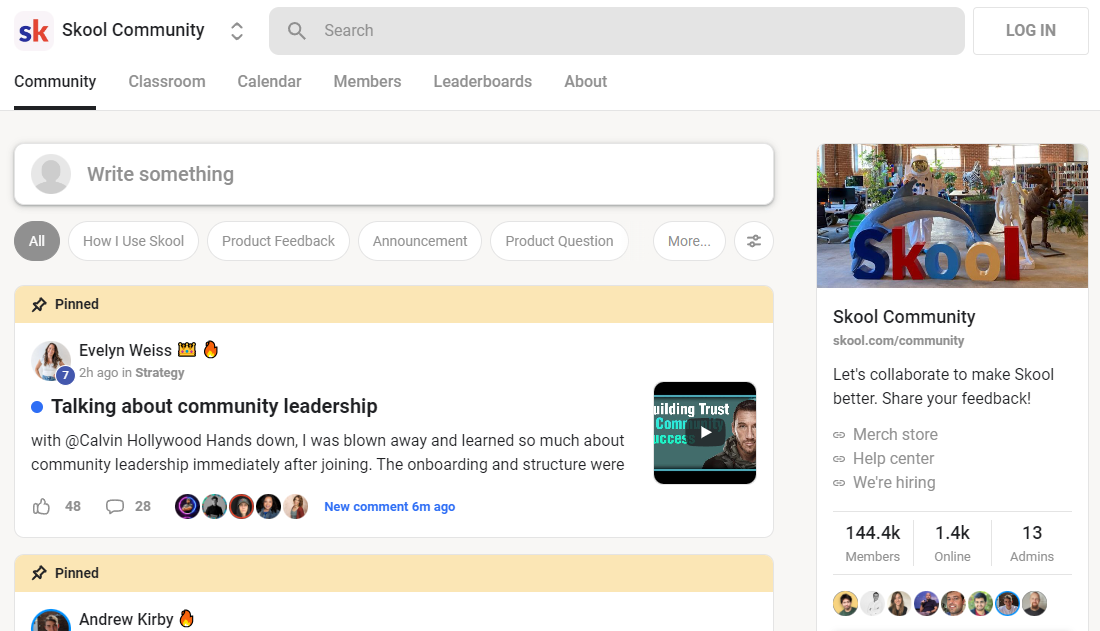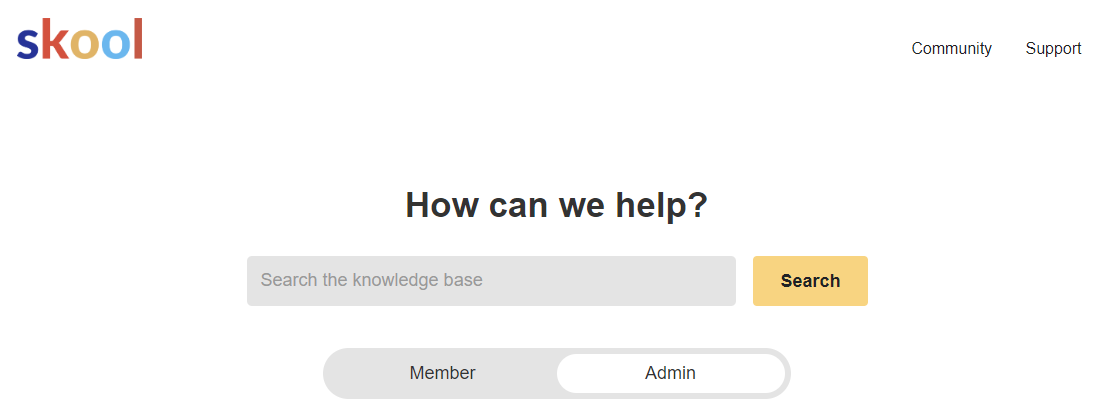Skool uses best-in-class gamification features that increase interaction. For instance, members can earn degrees based on their participation, which open training course content and various other rewards that additionally encourage them.
Previously, designers had to make use of various tools for hosting programs, constructing neighborhoods and handling e-mail advertising and marketing. This developed a disjointed experience for both makers and their target markets.
Producing Courses
Skool has an easy, straightforward interface and focuses on neighborhood structure and program hosting over various other features. It enables developers to create a lively community for their programs and mentoring programs by attaching them with the right audience. This likewise helps them keep an eye on the health and wellness of their material business with the help of an easy control panel.

To begin, an individual can sign up for a cost-free 14-day trial of Skool. After that, they can pay $99 a month for the system to hold a solitary area. There are nothing else rates choices offered for the moment. Skool additionally processes repayment and pays designers weekly, however it does bill a 2.9% transaction fee.
Among the unique facets of Skool is that it can be made use of to produce interactive programs. These can include real-time webinars, team tasks and real-time discussions. These kinds of courses urge participation and rise training course completion rates. On top of that, Skool’s gamification functions help to urge neighborhood participation. As an example, participants can make points and unlock program web content when they get to particular levels in the community.
Users can likewise use the social feed upon Skool to upload updates and engage with others in the community. The feed resembles a Facebook team, but with a more controlled means of publishing. This assists to stay clear of the sort of spam and misuse that takes place on other social systems.
Handling Communities
Skool is a very basic system to use, for both members and admins. Its simpleness is among its primary selling points– when someone joins your area they won’t be confronted with a bunch of options or attributes that can derail their experience and confuse them.
The system begins as a personal group by default, but you can conveniently transform this to open up your neighborhood to anybody that you wish to become part of it. Once you’ve done this you’ll see a social feed like you would certainly on Facebook Groups or WhatsApp (but without all the rip-off things and swearing).
You can also include a class tab to your community that you can use to share academic material with your participants. This feature is particularly beneficial for neighborhoods that are concentrated on knowing or specialist development as it assists to produce an educational framework and makes it easy for participants to track their progress. Additionally, the system has gamification elements that permit members to make points by suching as messages or comments. When they get to a particular level they can unlock resources, such as programs, additionally driving engagement.
The other amazing point is that Skool has a mobile app, just like Mighty Networks or Slack, so participants can keep up with your community and interact on the go. This is a great means to urge and engage your participants and to help them obtain assistance from each various other when they need it, instead of just turning to you for solutions.
Skool Hamza
Skool concentrates on gamification, permitting individuals to gain factors and badges for their contributions. This motivates participants to involve with the area and contribute to discussions. Subsequently, this helps them level up and unlock benefits like video clips and other web content. Admins can likewise establish programs to be unlocked at details degrees to more drive engagement.

The Skool user interface is spick-and-span and intuitive. Its highlights include the Community tab, which looks similar to a Facebook group feed. Here, users can publish remarks and message along with upload images, links and videos. Participants can additionally watch each others profiles and get in touch with them. Additionally, individuals can produce exclusive groups in the community to review particular topics.
One more attribute of Skool is the Classroom tab, which resembles a YouTube livestream or Zoom conference. Utilizing this, managers can host trainings and webinars for their students. They can also add events in the schedule to remain updated on upcoming events and Skool Hamza.
Nonetheless, some aspects of Skool could make use of renovation. For example, the platform isn’t versatile when it comes to monetization as individuals can not offer several prices tiers for their training courses and area memberships. Moreover, the device lacks an email marketing feature, which might be an offer breaker for some training course creators. It likewise does not have indigenous video clip hosting, implying that customers need to utilize outside platforms like YouTube, Loom and Vimeo for their videos.
Adding Content
The process for adding material and connecting with members on Skool is simple and straightforward. Admins can create messages with message, GIFs, video clips and polls. They can additionally add event calendars to alert neighborhood participants of upcoming team Zoom calls or live streams. Additionally, they can use Skool’s email program attribute to send out a message to the whole neighborhood with a solitary click. This removes the demand for identifying and list segmentation, which can be cumbersome.
Moreover, Skool’s gamification features can increase interaction and individual retention. It motivates members to interact with the web content regularly by awarding them with different rewards. These consist of opening training course content, making factors and earning a spot on community leaderboards.
While Skool offers a host of beneficial functions for developing and delivering online programs, it’s except everyone. The system is best for trains, professionals and other info business owners. Nevertheless, the price can be a barrier for some people wanting to monetize their on the internet web content.
Additionally, the absence of standard rates and a brief free trial might be a deterrent for many. In addition, the system’s laser-focus on eLearning can make it much less desirable for people who wish to sell various other digital items. Nonetheless, regardless of these disadvantages, Skool Hamza is still a viable alternative for any individual looking to produce and generate income from online programs.